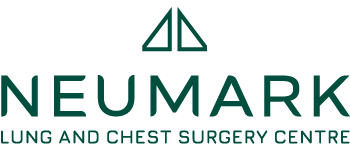Thymoma is the term that refers to tumours that arise from the epithelial cells of the thymus, which is a small gland in the lymphatic system that is responsible for producing and maturing immune cells. Classified as thymic epithelial tumours, a thymoma is a tumour but it is not always malignant. Benign thymomas grow slowly and stay within the thymus. Malignant thymomas can invade surrounding tissues and metastasise to other body parts. The difference between a benign and malignant thymoma is vital as it determines both treatment and prognosis.
Thymomas are often confused with thymic carcinomas. Both arise from the thymus, but thymic carcinomas are more aggressive, more likely to spread, and have a poorer prognosis. The difference between thymoma and thymic carcinoma lies in their behaviour and cellular structure. More importantly, thymic carcinomas are more often malignant.
Is Thymoma Cancer?
Thymoma is a cancer. Specifically, it is a rare cancer that arises from the epithelial cells of the thymus gland, a small but vital organ in the chest. The thymus gland plays a major role in children’s immune system development by helping the body fight infections.
Thymoma, as a cancer, grows at a slower rate and is less likely to spread than other cancers. That does not mean it is not dangerous. In some cases, the thymoma cancer cells can spread to the lining of the heart and lungs or other tissues in the body.

Symptoms and Causes of Thymoma and Thymic Carcinoma
Thymoma symptoms are varied and can be hard to detect. In many cases, thymomas are discovered incidentally during imaging tests for other conditions. When symptoms do appear, they can include:
- Persistent coughing, sometimes mistaken as a sign of a respiratory infection
- Chest pain or discomfort
- Shortness of breath, especially during physical activity
In some cases, thymoma can cause paraneoplastic syndromes, which are conditions caused by the tumour’s effect on the immune system. The most common is myasthenia gravis, a neuromuscular disorder characterised by muscle weakness, drooping eyelids and difficulty swallowing.
The exact cause of thymoma is unknown, but genetic mutations and immune system dysfunction are thought to be involved. Unlike many other cancers, it is not directly linked to smoking or environmental factors. The nebulous and often unnoticed development of the tumour highlights the importance of health monitoring, especially for those with a history of autoimmune disorders.

Thymoma Diagnosis: The First Step
Thymoma diagnosis starts with a thorough workup, often following an inadvertent discovery during imaging findings or problematic symptoms. A chest CT scan or MRI is usually the first test to determine the tumour’s size, location and extent. If thymoma is suspected, a biopsy may be done to confirm the diagnosis and differentiate between benign thymoma, malignant thymoma, and thymic carcinoma.
Early and accurate diagnosis is key as it determines thymoma treatment and outcome. Staging of the tumour, which assesses its spread to nearby structures or distant organs, further guides the treatment approach.

Minimally Invasive Thymoma Treatment
In the past, thymoma treatment required open surgery with big incisions and long recovery periods. With the advancement of minimally invasive techniques, thymoma and thymic carcinoma care have now evolved. Two of the leading approaches are:
- Robotic-Assisted Surgery (RATS): Using robotic technology, surgeons can perform precise, minimally invasive resections of thymomas. This reduces blood loss, minimises post-operative pain and shortens hospital stays, allowing patients to return to normal activities faster.
- Video-Assisted Thoracoscopic Surgery (VATS): VATS involves small incisions and a camera to remove thymomas with minimal disruption to surrounding tissues. Like robotic-assisted surgery, it’s excellent for selected patients.
These minimally invasive approaches are ideal for early-stage thymomas where complete removal can be curative. For advanced or malignant thymomas, surgery may be combined with other treatments like radiation or chemotherapy to ensure the best results. Besides surgery, targeted therapy can be used to attack cancer cells in advanced thymomas.

Why Early Detection is Key in Thymic Carcinoma
As with many cancers, early detection of thymic carcinoma or thymoma improves treatment outcomes. Thymoma is a rare cancer, which makes early detection and diagnosis more difficult. When caught early, benign thymomas can be cured with surgery alone, while malignant thymomas are more responsive to a combination of therapies. Regular health checkups and prompt attention to symptoms like persistent coughing or unexplained chest pain can make all the difference.

Why Specialised Care Matters
Thymoma management, especially if malignant, requires a multidisciplinary approach. Thoracic surgeons, oncologists and radiologists must work together to develop a personalised cancer treatment plan that considers the tumour’s stage, the patient’s overall health, and potential complications.
Neumark Lung & Chest Surgery Centre focuses on providing comprehensive care with the latest technology and a patient-centred approach. From diagnosis to advanced surgical techniques, we prioritise early detection, accurate staging and minimally invasive treatment to get the best results.
Prognosis and Survival
The prognosis and survival rate for thymoma patients vary greatly depending on the stage and type of cancer. Generally, thymoma’s 5-year survival rate is very good, at 80-90%. Thymic carcinoma, a more aggressive cancer, has a 5-year survival rate of 50-60%. These rates depend on factors like type and stage of cancer, patient’s overall health and response to treatment. Early detection, timely intervention, and the assistance of thymoma cancer specialists are key to improving prognosis and survival for thymoma and thymic carcinoma patients.
Start Your Journey to Better Health
Whether benign or malignant, thymomas require specialised care and a personalised approach. Minimally invasive procedures like Robotic-Assisted Surgery (RATS) and Video-Assisted Thoracoscopic Surgery (VATS) have changed the game and given patients hope and a better quality of life.
If you or a loved one has been diagnosed with thymoma or are experiencing symptoms that could be a sign of thymoma, don’t wait. Contact Neumark Lung & Chest Surgery Centre today to book an appointment. Early detection and specialised care can change lives and give you clarity, relief and direction.

